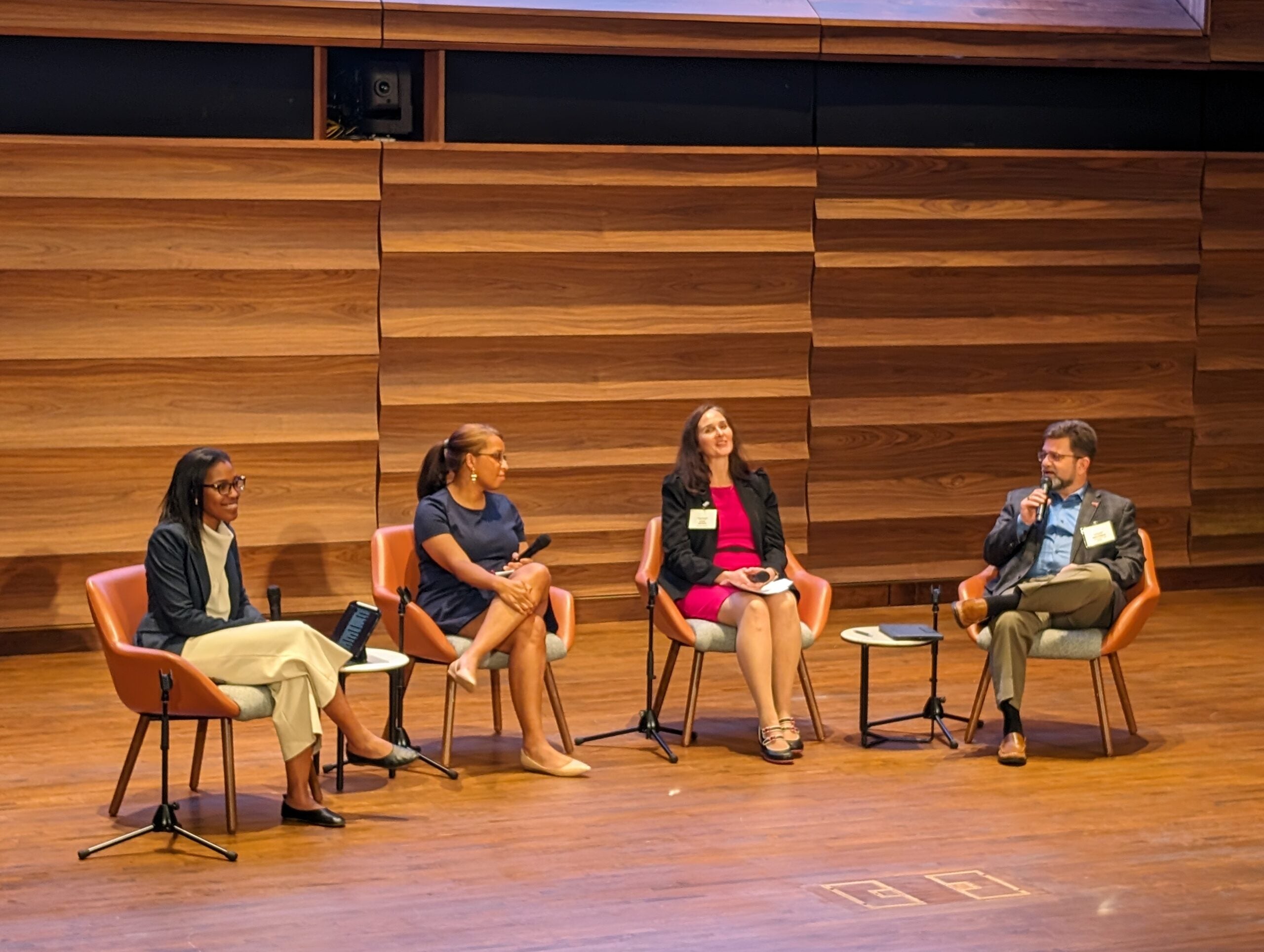Open Sustainability Policy Summit Recap and Video: NODE Collective’s Open Data Repository for U.S. Residential Electrification Incentives
At the recent Open Sustainability Policy Summit, a panel discussion, moderated by DeAndrea Salvador from Eli Technologies, brought to light the NODE Collective’s innovative approach to streamlining residential electrification incentives across the United States (video follows below). The panel featured industry leaders Kristin Eberhard, Senior Director of State & Local Policy at Rewiring America; Steve Kalland, Executive Director of the North Carolina Clean Energy Technology Center; and Rose Stephens-Booker from the Building Decarbonization Coalition. Here are the key takeaways from this pivotal session.
1. Introduction to NODE Collective
Salvador introduced the NODE Collective as a groundbreaking initiative designed to centralize and standardize data on residential electrification incentives across the U.S. This collective effort, involving organizations such as BDC, Eli, DSIRE, Rewiring America, and RMI, aims to fill a critical gap in the market by providing a comprehensive and structured data repository. NODE Collective was recently accepted as a project under LF Energy.
2. The Challenge of Fragmentation
The panelists highlighted the current fragmentation of electrification incentives. With rules and funding levels constantly changing across different jurisdictions, consumers, businesses, and researchers face significant challenges in accessing accurate and up-to-date information. NODE Collective seeks to address these issues by aggregating data from multiple sources, reducing the reliance on outdated and often incorrect spreadsheets.
3. Diverse Use Cases and Applications
NODE’s data repository is envisioned to support a variety of use cases. From contractor tools to consumer educational resources, the standardized data will enhance the effectiveness of existing tools and foster the development of new applications. For instance, Rewiring America’s open API will integrate this data to offer dynamic consumer guidance on their website, making it easier for individuals to navigate the incentives available to them.
4. Impact on Underserved Communities
A key focus of the discussion was on the impact of NODE’s repository on low-income and disadvantaged communities. By providing transparent and accessible information, NODE aims to empower these communities to take advantage of available incentives, thereby promoting equitable access to electrification benefits. The panelists emphasized the importance of trusted sources in counteracting misinformation and supporting community-based organizations.
5. Future Directions and Challenges
Looking ahead, the panelists discussed potential challenges and opportunities in maintaining and expanding NODE’s repository. Standardizing data across diverse programs and ensuring continuous updates are crucial for its success. Moreover, the panel explored the need for collaboration with small utilities and other stakeholders to develop best practices and schemas that can be widely adopted.
